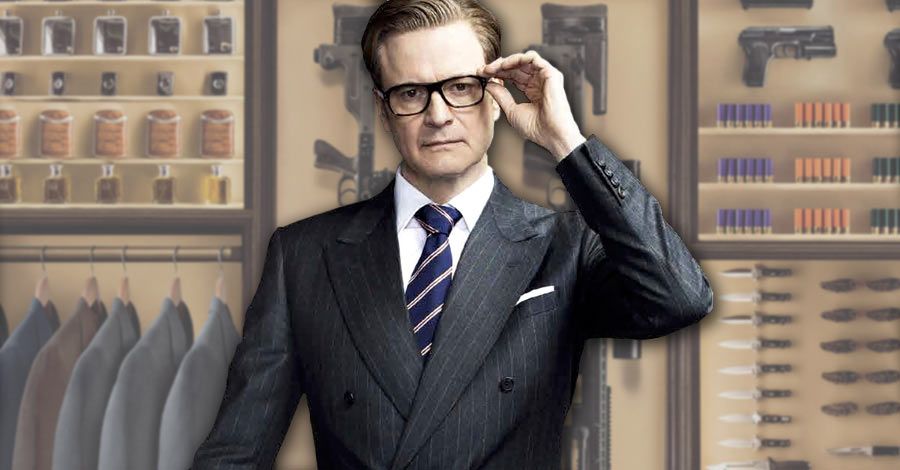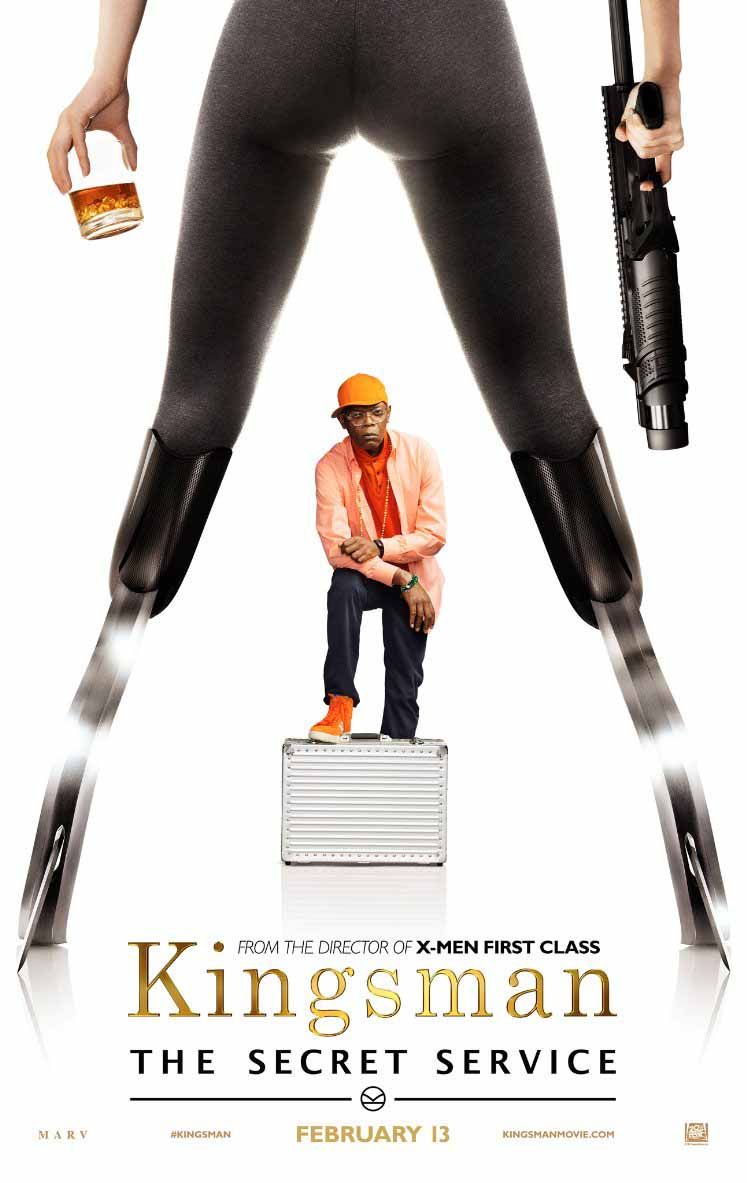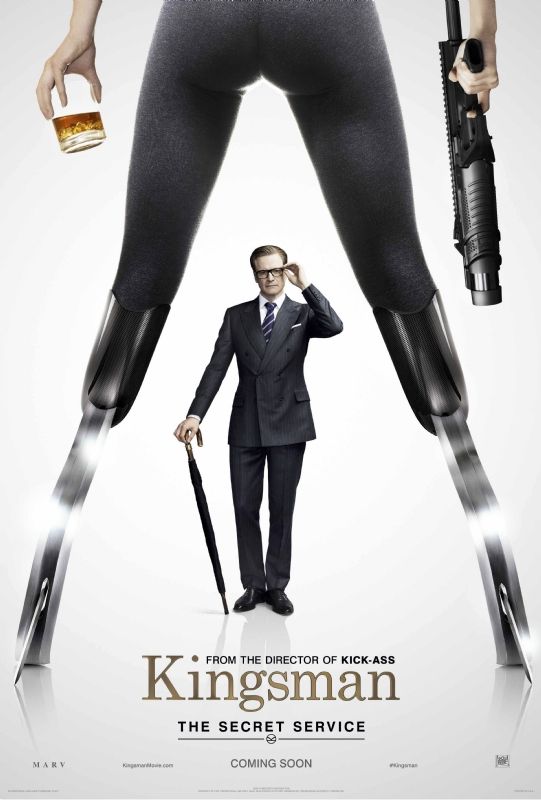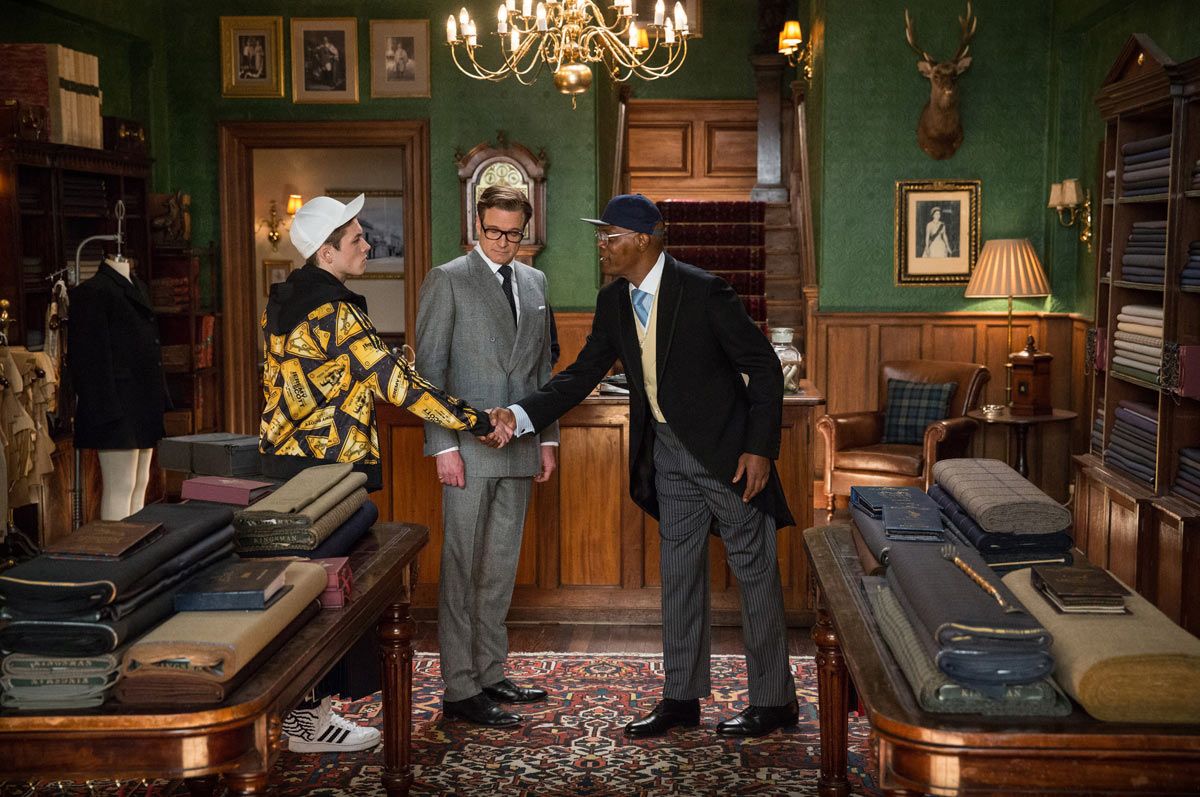"Kingsman: The Secret Service" is a movie that defies expectations because it almost defies you to have any expectations. Lead Taron Egerton is a newcomer, Colin Firth is untested as an action lead and Matthew Vaughn is not yet a Big Deal Director. Though well received, "X-Men: First Class" didn't propel him into the spotlight the same way it did members of its cast, and his Hollywood films ("First Class" and "Kick-Ass," another Mark Millar collaboration) are different enough from each other that his voice is hard to peg. The comic the film is based on came and went a few years ago, mostly only making an impression with devotees of Millar and artist/co-creator Dave Gibbons.
On the other hand, "Kingsman" delivers thanks to Egerton providing a captivating turn and Firth proving to be an excellent action lead. "Kingsman" also cements Vaughan's style as a quantifiable commodity by acting as the bridge between the cartoonish hyper-violence of "Kick-Ass" and the precision of "X-Men: First Class." And, it also defies your expectations of what to expect from a movie released in February -- a time that is generally perceived as Hollywood's dumping ground.
"Kingsman" serves up a plot that's equal parts classic Bond and "My Fair Lady," comparisons that the movie itself actually makes. Egerton stars as Eggsy, a young, smart almost-Marine with Olympian-level gymnastics skills whose potential has been squandered by his low-class status, abusive stepfather and the ever present specter of his father's death. Firth's Harry Hart, also known by the codename Galahad, is a secret agent with the Kingsmen, an unaffiliated superspy group with no allegiances to any government. Also, Eggsy's dead father? He was Hart's Kingsmen recruit back in 1997, and he died on an early mission. In the present, Eggsy bottoms out -- he gets arrested after stealing a car and engaging in a jaw-dropping backwards car chase with a cop -- just as Hart needs to submit a new Kingsman candidate, thus sending the lower class drop out on the road towards becoming a posh, suit-wearing, umbrella-toting super spy.
These two character points, Hart's failure with Eggsy's father and Eggsy's constant culture shock, form the spine of the film. Both have crystal clear motives throughout the film, these two plot points informing every one of their decisions. Samuel L. Jackson, who plays the entertainingly evil Valentine, even has a clear motivation as the story's villain, even if the film waits until the third act to connect the rather disparate dots it lays out.
The rest of the considerably large cast doesn't fare quite as well. Sophie Cookson, another new face to American audiences, is a weak female lead as fellow Kingsman candidate Roxy. Her part is underwritten with all of her potentially triumphant moments undercut, unfolded off-screen or trumped by Eggsy. Characters you initially think are throwaways, like Mark Strong's Merlin, spring to surprise prominence towards the end of the film; between all the Kingsmen, the half dozen new recruits, Eggsy's family and Valentine's henchmen, there are a lot of faces and names to keep straight.
The two standouts in the film are Firth and Jackson, both of whom seem to be delighting in playing the very roles their characters fawn over while sharing Big Macs at a dinnertime showdown. They're in a spy movie, specifically a self-aware one that straddles the line between reverence -- the gizmos and fashion are a loving nod to the Connery "Bond" era -- and irreverence -- characters make decisions specifically because they are not in a movie.
It's really hard to think of anyone that would be more perfect as the dashing lead Kingsman than Firth. He both looks the part and has a gentleman's acting resume, having played kings and romantic leads in period pieces. It's a revelation seeing him apply that same aplomb to the role of a dashing and dapper secret agent, one that mashes Black Widow's fighting precision with Wolverine-style berserker efficiency. Yeah, Firth kicks a lot of ass, and it's apparent that he's having fun doing so. You will leave this film wanting to go back in time and convince the "Bond" team to go with Firth over Pierce Brosnan.
After seeing Samuel L. Jackson play it cool as Nick Fury in what feels like a dozen films, you forget that he can play other characters -- including a lisping, Jobs-esque, philanthropist that becomes a henchman-having, mountain base-dwelling, satellite-launching bad guy. More so than the fish out of water lead Eggsy, Jackson's Valentine acts as a mouthpiece for the audience, undercuting serious moments with a squeamish, everyman sense of humor -- and by "serious" I mean "seriously bloody and violent." It's rare to see that straight-man job given to a bad guy, but Jackson makes it work and gets a laugh nearly every time.
While his style has been hard to pin down, Vaughn does have a track record of launching careers, or giving them a significant boost. He helped jump start Aaron Taylor-Johnson's career with "Kick-Ass," and pushed Jennifer Lawrence and Michael Fassbender into their current ubiquity with "X-Men: First Class." Newcomer Taron Egerton could be the next Vaughn success story, but while he's solid in the role, he suffers from the large cast and script, fading into the background for chunks of the movie while the faces of actors we know occupy our attention. Eggsy is a fun character to hang out with, yes, and he's definitely the most thematically important character in the film, but he never gets to be quite as much fun as everyone else. As his Kingsman trainer tells him, he has a chip on his shoulder, and it's more fun watching characters that don't, like Harry Hart and Valentine. When he finally takes control of the film in the third act and puts on his bespoke suit, his true potential as a charismatic leading man breaks through, and he finally gets to have some of the fun Firth has been having all along.
Honestly, the real breakout star of this film may very well be Vaughn himself. With "Kingsman," the director proves himself to be one of the best action directors working today. Each fight scene, and there are many, is infused with palpable excitement and adrenaline-pumping originality. Vaughn's incredibly visceral staging and execution of each altercation deserves as much credit as Firth's performance in turning the actor into a gentlemanly marital arts master. Not only have we never seen Firth pull off this type of physicality, this type of physicality has never been seen in a film before, period.
The over-the-top and fantastically frenetic fight scenes do cause certain parts of the film to feel a little bloated, especially in the second act when the film forgoes a montage of new recruits being trained, instead opting to share what feels like every single lesson. There's a curious "Hunger Games"-style, YA vibe to this chapter that feels a bit out of step with the rest of the movie's spy homage.
The other drawback is the overall Millar-ized tone. While the film was developed alongside the comic and has evolved into its own animal, the anarchy and predilection to offend inherent in Millar's work at times threatens to negatively darken the film's gleefully chaotic irreverence. One scene at the end of the film's second act -- which in reality felt like the end of its third -- uses a word that is guaranteed to have a drastically different effect on American audiences than English ones given our country's historical relationship to it. This word punches people in the gut, and it's placement before the most ambitious one-take fight scene in recent memory feels incredibly out of place. The word -- used twice -- slaps you in the face and leaves your brain reeling mere seconds before the violence begins.
Overall this is a summer movie masquerading as a winter curiosity. It looks fantastic; the cinematography goes from an inviting green and brown to an almost tongue-in-cheek purple and silver in the final act. The special effects are mind blowing at times, and you'll pardon that pun once you see it, This is a film that contains fight scenes unlike any you've seen before, filled with action and highly entertaining performances that keep the story on track, even as the overlong plot and distracting offensiveness nearly knocks it off course.




